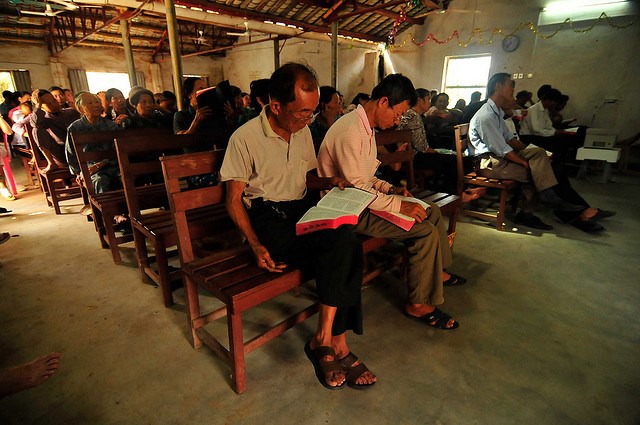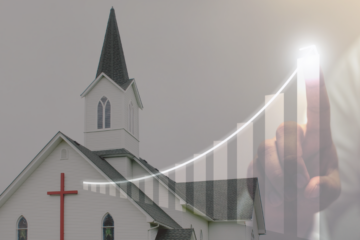
7/29/20 – By Sam McKeen
Have you ever noticed how obsessed our society is with safety?
Everywhere that you look you see systems, structures, and signs designed to keep us safe. Nearly every product that you buy has a warning label…and let’s be honest, some of them are quite ridiculous:

While safety can be a good thing, it is possible to be too safe.
We are all aware of the over protective parent that would like to keep their child wrapped up in bubble wrap if they could. This desire is born out of a misguided understanding of love for their child. While they are right in not wanting their child to be hurt, they do not realize that they in fact are doing more harm by not allowing the child to experience the bumps, bruises, and the lessons that come with them. You can’t mature and grow without experiencing some pain.
Of course, this aversion to pain and over-zealousness for safety and security can happen to believers as well. We can become so focused on self-preservation and our physical safety that we completely lose site of the reason God has placed us here on this earth. Thus, we don’t grow and mature into the men and women that God desires us to be.
We must not forget the great sacrifice of Christ and the mission that He has given His Church.

Praise God that Jesus was not concerned with His safety or He would have never allowed Himself to die on a cross. Jesus makes it clear that if we are His disciples than we will not idolize our physical comfort and safety.
“If anyone would come after me, let him deny himself and take up his cross daily and follow me.
Luke 9:23(ESV)
Thank God that the Apostles were not worried about their safety or the church would have never spread around the world. Take a look at this list of things that Paul experienced as he lived a life of obedience to God.
Five times I received at the hands of the Jews the forty lashes less one. Three times I was beaten with rods. Once I was stoned. Three times I was shipwrecked; a night and a day I was adrift at sea; on frequent journeys, in danger from rivers, danger from robbers, danger from my own people, danger from Gentiles, danger in the city, danger in the wilderness, danger at sea, danger from false brothers; in toil and hardship, through many a sleepless night, in hunger and thirst, often without food, in cold and exposure.
2 Corinthians 11:24-27(ESV)
We have amazing testimonies in the Bible and in church history of the great sacrifices that occurr when God’s people live in obedience to God. Name a man or woman that accomplished great things for the Kingdom of God and I can guarantee you that they were not concerned for their personal safety. Or take some time to read about the unsafe lives of heroes of the faith in Hebrews 11.
God’s people cannot allow fear to prevent them from obeying God.
Over the last couple of months as church leaders have considered what to do in regards to gathering in the midst of the coronavirus, I have heard many statements to the effect of, “It is just not safe to gather.” Now, I am not writing this post to argue how safe it is (or isn’t) for the church to gather. There are many who are far more knowledgeable than myself when it comes to that topic. I simply want to point out that when we elevate our personal safety over obedience we depart from what the Bible teaches.
Some would argue that we can function as the church individually and that with technology we can gather virtually. I agree that we need to be living lives of obedience individually and that we should leverage technology to communicate truth. However, the church is not an individual and meeting virtually falls short of how a local church is to function.
The Greek word for church in the New Testament is “Ekklesia.” The definition of Ekklesia is “a gathering of citizens called from their homes into some public space, an assembly.”
In the Biblical context, a local church is a group of Christians who regularly gather to affirm and oversee one another’s walk with God and citizenship in God’s Kingdom through worship, preaching, and the ordinances (baptism and communion). Of course, this all should be happening within the context of accomplishing the church’s mission to go and make disciples. (Matthew 28:19-20)
Obviously, we could expand on the function and practices of the church but this brief definition should help us to understand that the individual members of the church are not meant to be apart for an extended period of time.
When you read the New Testament, it is very clear that the church was a community. They lived life together, not in isolation. In other words, we can’t be a local church if we are not gathering.

In many places in our world today believers regularly risk their lives in order to gather. In some places they face persecution from family or from the government. In other places they travel great distances, expose themselves to extreme weather conditions, ford flooded rivers and traverse cliffside trails where one wrong step can mean serious injury or death.
Why do they do this? Why do they put such importance on gathering? It is because they love God and His church. They have a passion to obey God and to effectively accomplish the mission God has given them. They know that to do so is going to be costly but they are not worried for they know that their home is not on this earth. Thus, they do not fear the things of this world because their hope and security are found in the God of the universe.
Who shall separate us from the love of Christ? Shall tribulation, or distress, or persecution, or famine, or nakedness, or danger, or sword?
Romans 8:35(ESV)
Let us not allow fear to keep us from living the life that God has called us to live.
And let us consider how to stir up one another to love and good works, not neglecting to meet together, as is the habit of some, but encouraging one another, and all the more as you see the Day drawing near.
Hebrews 10:24-25(ESV)
This guest post was written by Sam McKeen. Sam serves as the Associate Pastor at Center Barnstead Christian Church.


